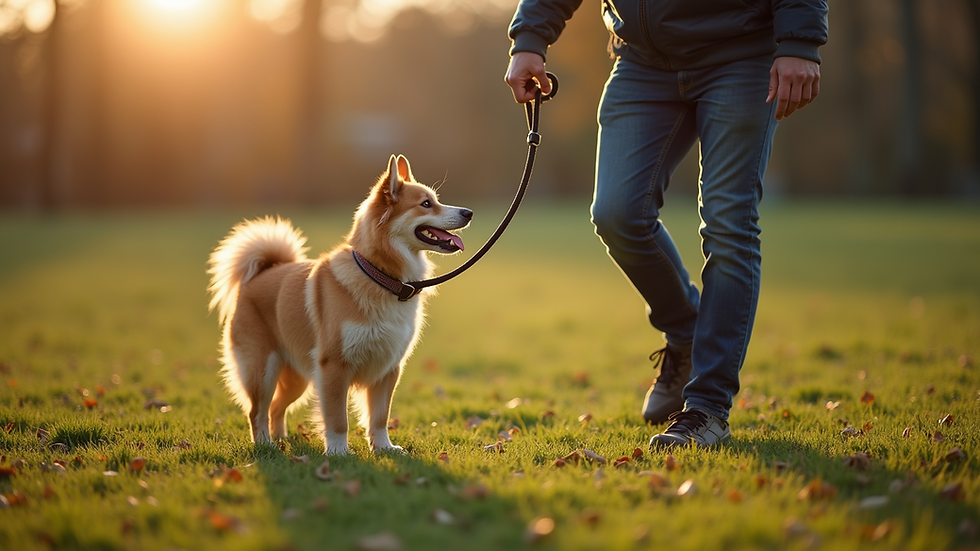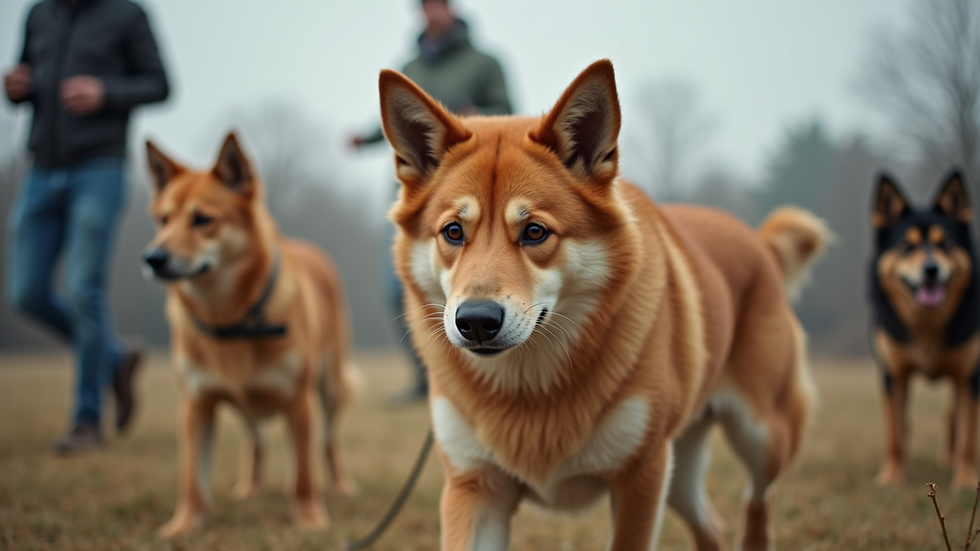What is Day Training and How Does It Work?
- Elton Hill
- Aug 11
- 4 min read
Day training has become a popular method for improving dog behavior and obedience without the need for owners to commit to long-term training sessions at home. This approach offers a structured environment where dogs can learn essential skills while socializing and receiving professional guidance. But what exactly is day training, and how does it work? This article will explore the concept, benefits, and practical aspects of day training to help you understand if it’s the right choice for your dog.
Understanding Day Training and Its Benefits
Day training is a professional service where dogs attend training sessions during the day, typically at a training facility or a specialized center. Unlike traditional training classes that require owners to be present, day training allows dogs to spend several hours learning and practicing commands under the supervision of experienced trainers.
The main benefits of day training include:
Consistent Training Environment: Dogs receive focused attention in a distraction-controlled setting.
Socialization Opportunities: Interaction with other dogs and people helps improve social skills.
Professional Guidance: Trainers use proven techniques tailored to each dog’s needs.
Convenience for Owners: Busy schedules are accommodated as owners drop off and pick up their dogs.
Day training is especially useful for dogs with behavioral issues such as excessive barking, leash pulling, or anxiety. It can also be a great way to reinforce basic obedience commands like sit, stay, and come.

How Day Training Works: Step-by-Step Process
The day training process usually follows a structured routine designed to maximize learning and engagement. Here’s a typical breakdown of how day training works:
Initial Assessment
Before starting, trainers evaluate the dog’s behavior, temperament, and training history. This helps create a customized plan.
Daily Training Sessions
Dogs participate in multiple short training sessions throughout the day. These sessions focus on specific commands, behavior correction, and socialization.
Play and Rest Periods
To keep dogs motivated and prevent burnout, trainers include breaks for play, exercise, and rest.
Owner Involvement
Some programs offer brief sessions where owners learn how to reinforce training at home, ensuring consistency.
Progress Reports
Trainers provide regular updates on the dog’s progress and suggest follow-up steps.
This approach ensures that dogs receive intensive training while maintaining a balanced routine that supports their well-being.

What is the 3-3-3 Rule for Dog Training?
The 3-3-3 rule is a simple guideline often used in dog training to help owners understand the timeline for behavior changes. It suggests that:
3 Days: The dog will show initial signs of understanding new commands or routines.
3 Weeks: The dog begins to consistently follow commands and exhibit improved behavior.
3 Months: The new behaviors become fully ingrained and part of the dog’s natural habits.
This rule highlights the importance of patience and consistency in training. Day training programs often align with this timeline by providing intensive sessions that accelerate learning within the first few weeks.
For example, a dog struggling with leash pulling might start showing improvement after a few days of focused training. By the end of three weeks, the dog could walk calmly on a leash most of the time, and after three months, this behavior becomes second nature.

Choosing the Right Day Training Program
Selecting the right day training program is crucial for achieving the best results. Here are some factors to consider:
Trainer Qualifications: Look for certified trainers with experience in positive reinforcement techniques.
Training Methods: Avoid programs that use harsh or punitive methods. Positive, reward-based training is more effective and humane.
Facility Environment: The training center should be clean, safe, and equipped with appropriate training tools.
Program Flexibility: Choose a program that offers customized plans based on your dog’s specific needs.
Owner Support: Good programs provide guidance for owners to continue training at home.
Many reputable services offer day training for dogs that combine these elements. For instance, day training for dogs can provide a comprehensive approach tailored to your dog’s personality and challenges.
Tips for Maximizing Success with Day Training
To get the most out of day training, owners should actively participate in the process. Here are some actionable recommendations:
Communicate Clearly with Trainers: Share your dog’s history, habits, and any concerns.
Follow Trainer Advice at Home: Consistency between training sessions and home life is key.
Practice Commands Daily: Reinforce what your dog learns during day training.
Be Patient and Positive: Celebrate small victories and avoid frustration.
Maintain a Healthy Routine: Ensure your dog gets enough exercise, nutrition, and rest.
By combining professional day training with your ongoing efforts, your dog will develop better behavior and stronger obedience skills.
Day training offers a practical and effective way to improve your dog’s behavior through professional guidance and structured sessions. Whether you’re dealing with specific behavioral issues or simply want to enhance your dog’s obedience, day training can provide the support and consistency needed for lasting results. With the right program and commitment, your dog can enjoy a happier, more balanced life.




Comments